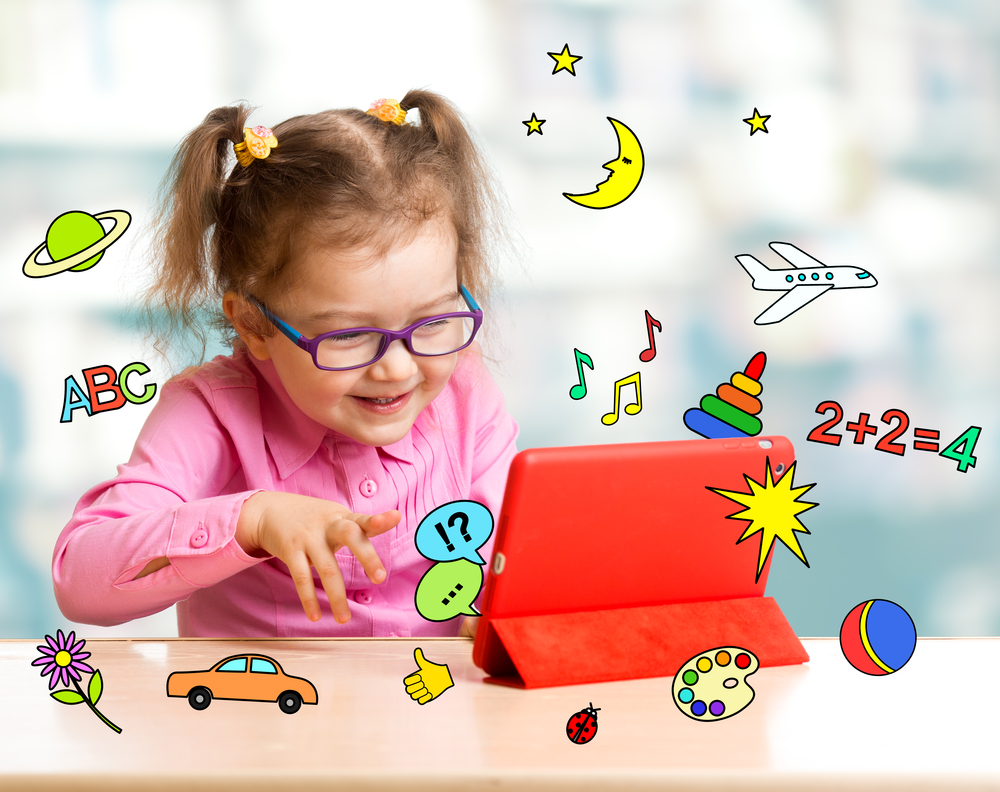Normal Sorting worksheets activities
14 filtered results
-
From - To
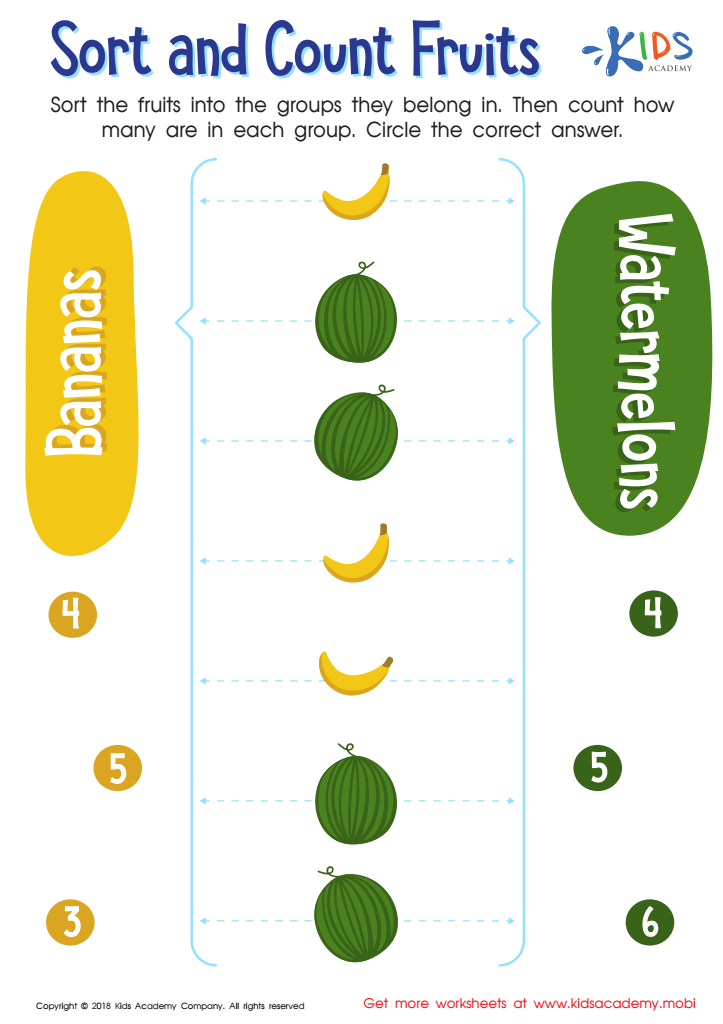

Sort and Count Fruits Worksheet


Sort and Count to the Moon Worksheet
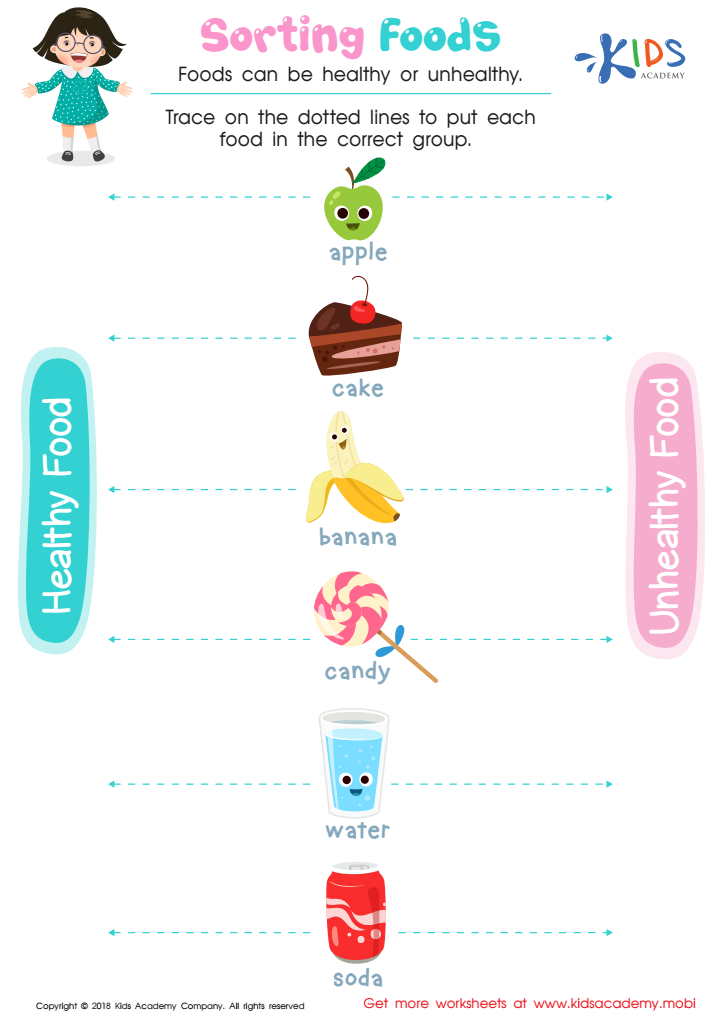

Sorting Food Worksheet


Sorting Animals in 3 Groups Worksheet
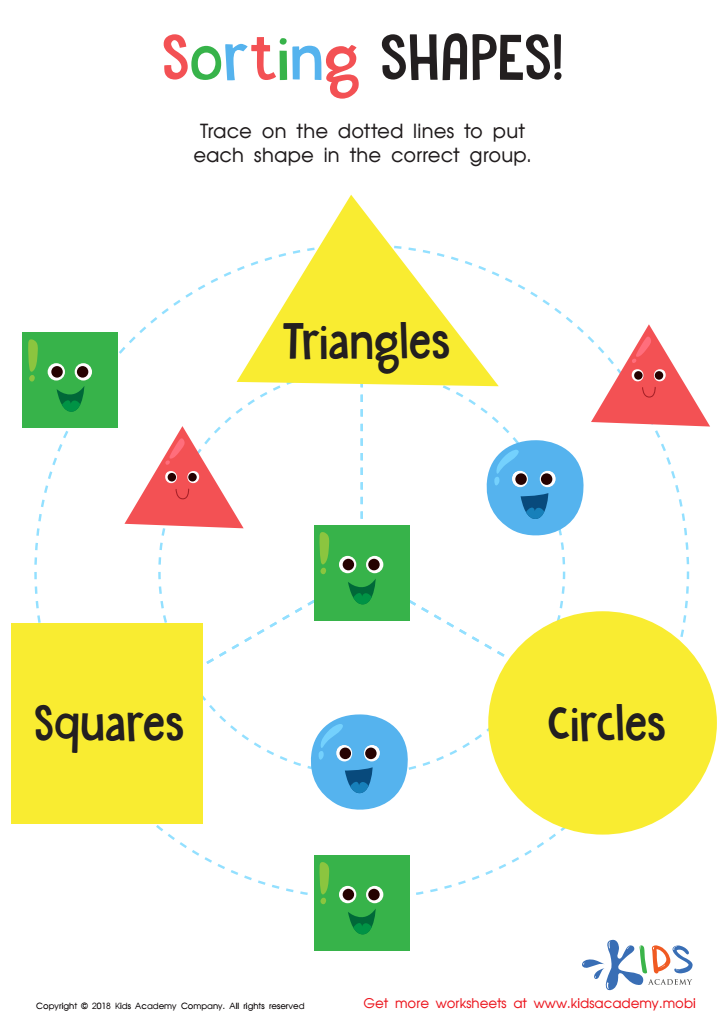

Sorting Shapes - Part 3 Worksheet
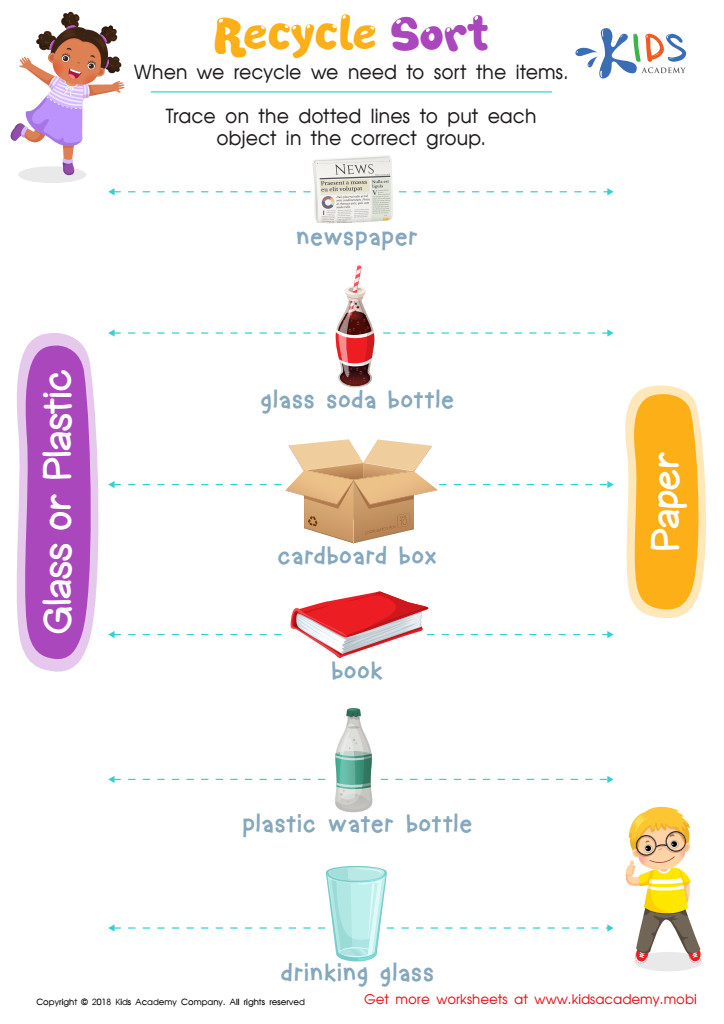

Recycle Sort Worksheet
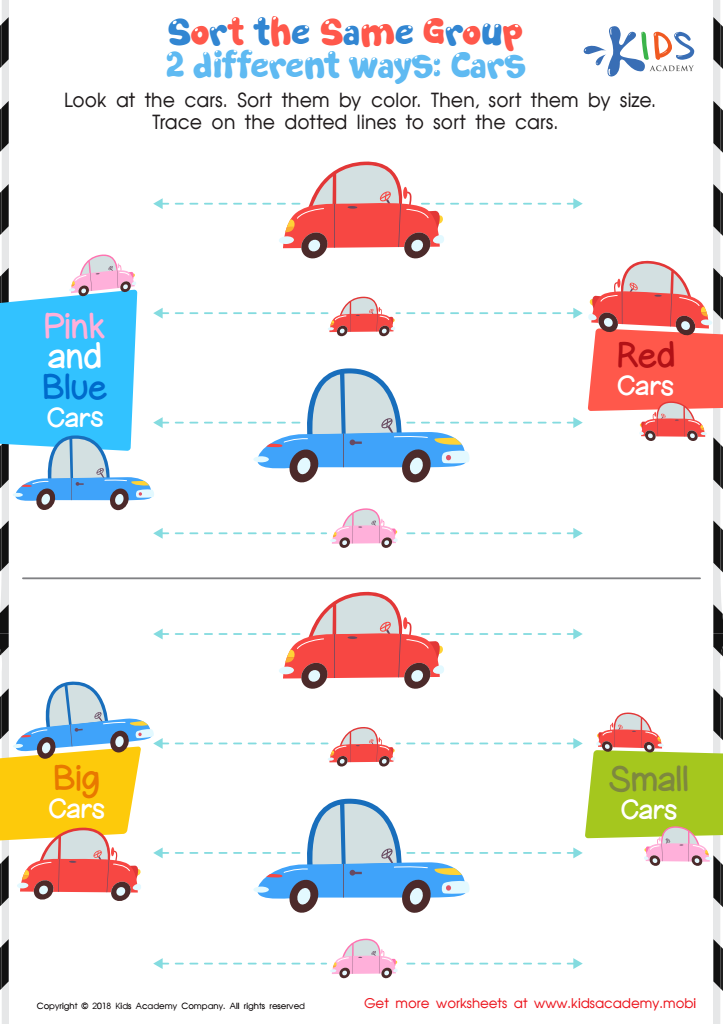

Sort the Same Group 2 Different Ways: Cars Worksheet
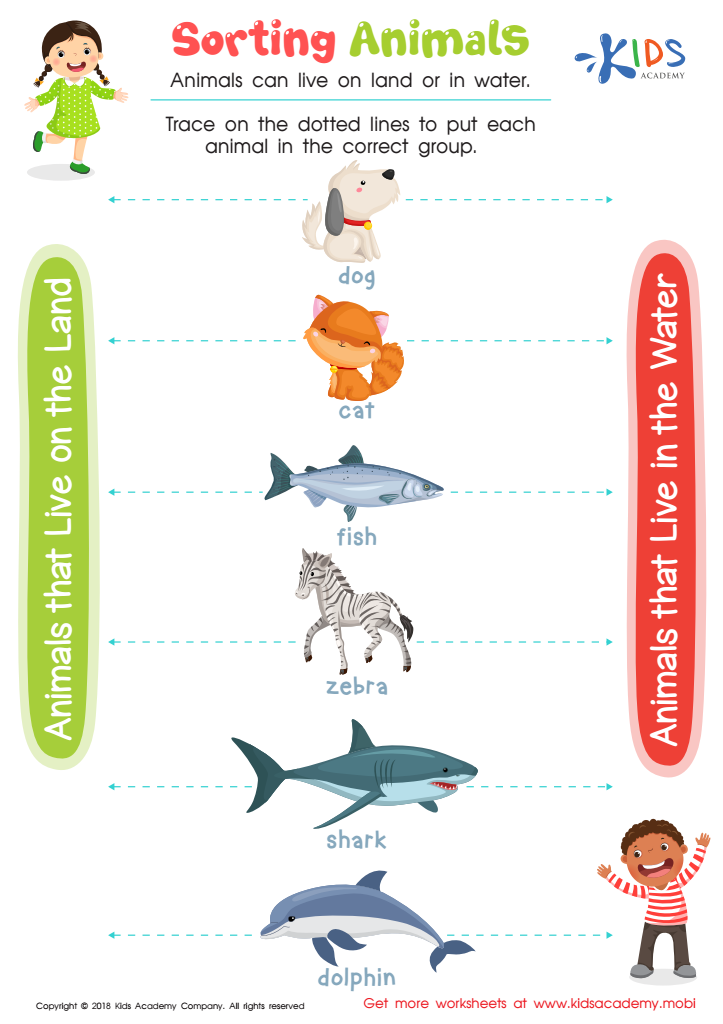

Sorting Animals Worksheet
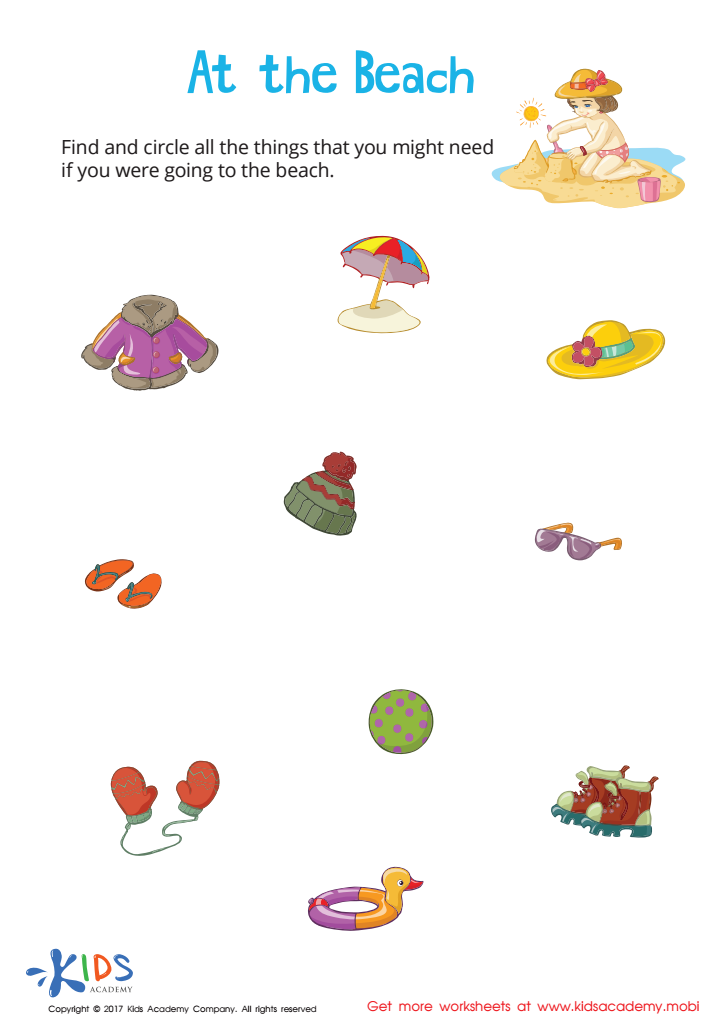

At the Beach Sorting Worksheet
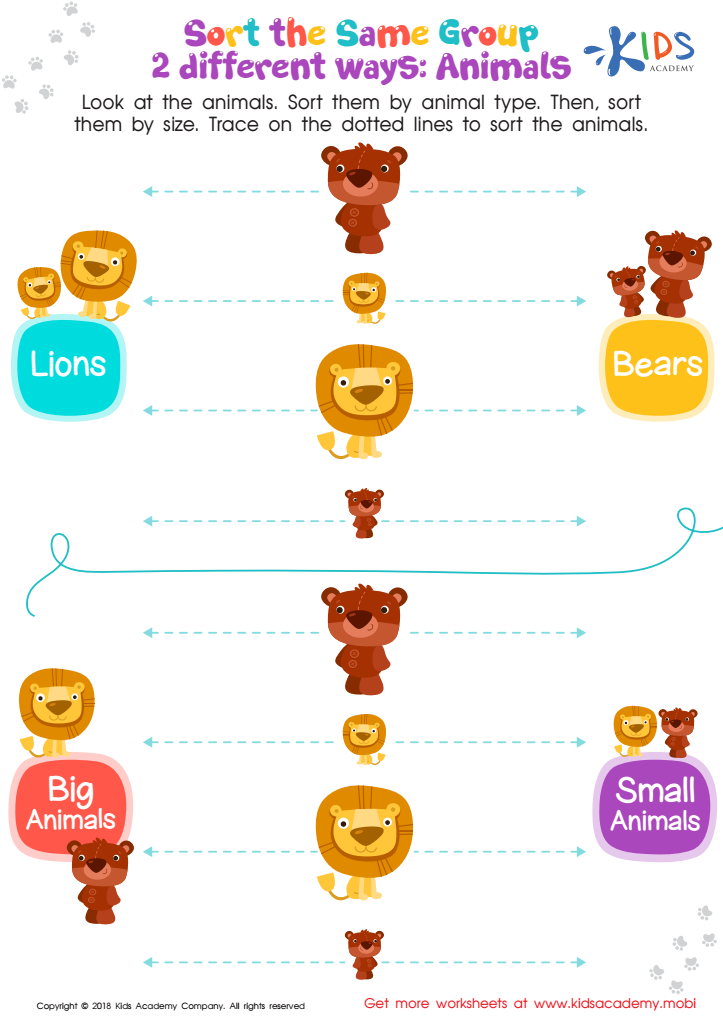

Sort the Same Group 2 Different Ways: Animals Worksheet
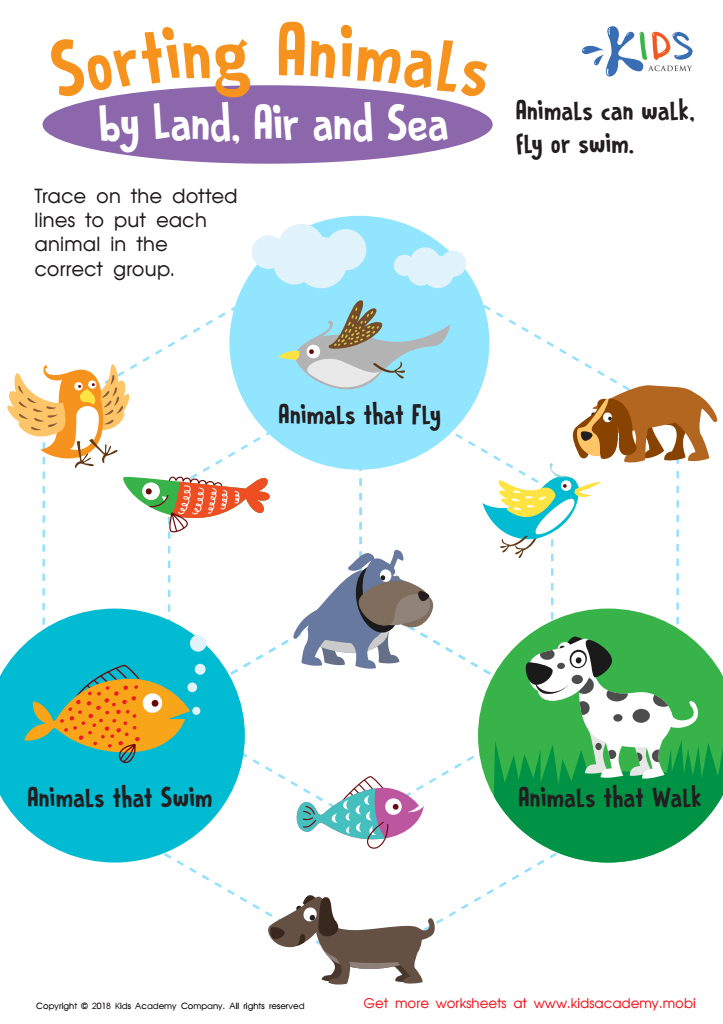

Sorting Animals by Land, Air and Sea Worksheet
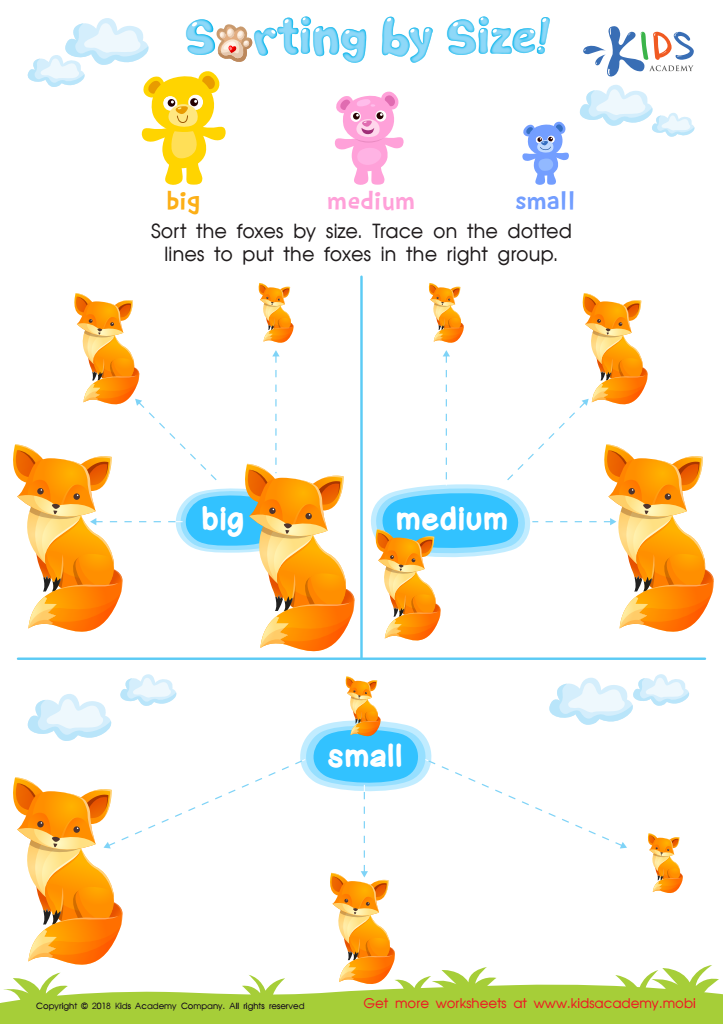

Sorting by Size Worksheet
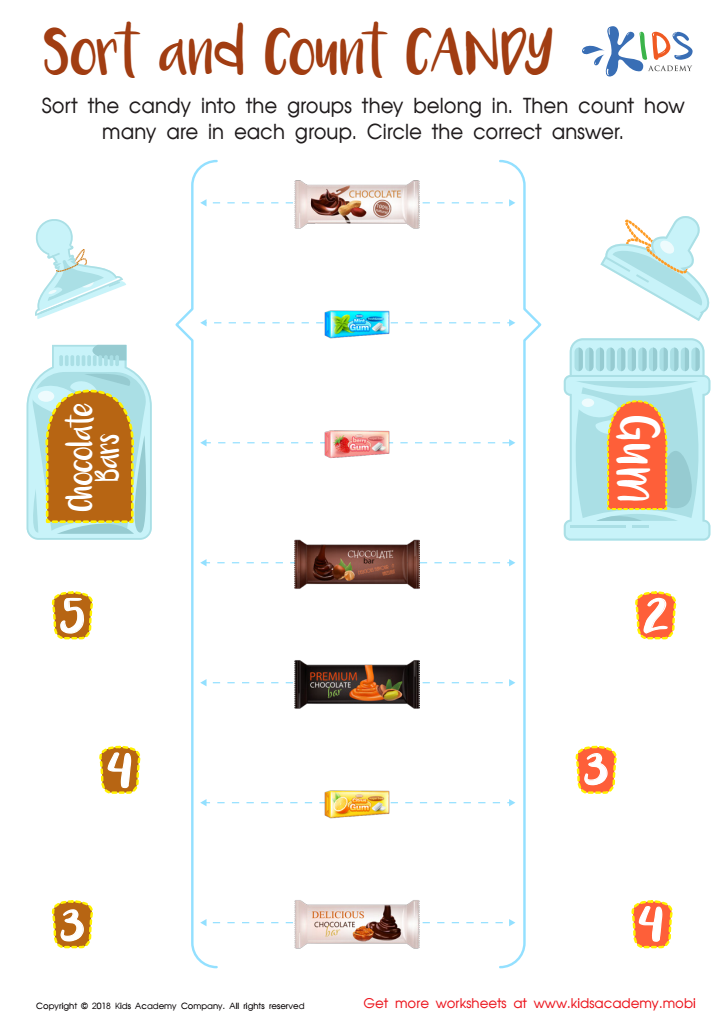

Sort and Count Candy Worksheet
Normal Sorting worksheets activities are instrumental tools in the learning and development process for children, especially in their early educational years. These exercises are not just simple tasks but are foundational elements that contribute significantly to the cognitive and analytical growth of young minds. Sorting, as an activity, encourages children to recognize patterns, categorize items based on specific criteria, and develop critical thinking skills. The utility of Normal Sorting worksheets activities extends across various domains of learning, making them an indispensable part of early childhood education.
Firstly, Normal Sorting worksheets activities foster organizational skills. From an early age, children learn to classify objects according to size, shape, color, or type. This ability to arrange and organize information is crucial across all areas of study and daily life, instilling a sense of order and method in young learners.
Secondly, these activities enhance problem-solving skills. By engaging in sorting exercises, children learn to identify the most efficient and effective ways to categorize items, which sharpens their decision-making abilities. This critical thinking aspect is vital for academic success and life beyond the classroom.
Moreover, Normal Sorting worksheets activities bolster language and vocabulary development. As children sort and categorize items, they learn new words and terms associated with the objects they are working with. This enriches their vocabulary and aids in language acquisition, providing a dual benefit of cognitive and linguistic development.
Additionally, these worksheets promote inclusivity and accessibility in learning. They can be easily adapted to suit different learning styles and needs, ensuring that every child can benefit from the exercises regardless of their abilities or preferences.
In conclusion, Normal Sorting worksheets activities play a pivotal role in foundational education. By enhancing organizational skills, problem-solving abilities, and language development, these activities prepare children for future academic challenges and life skills. Their adaptability and inclusivity further underscore their value, making them a vital component of early learning curriculums.
 Assign to My Students
Assign to My Students



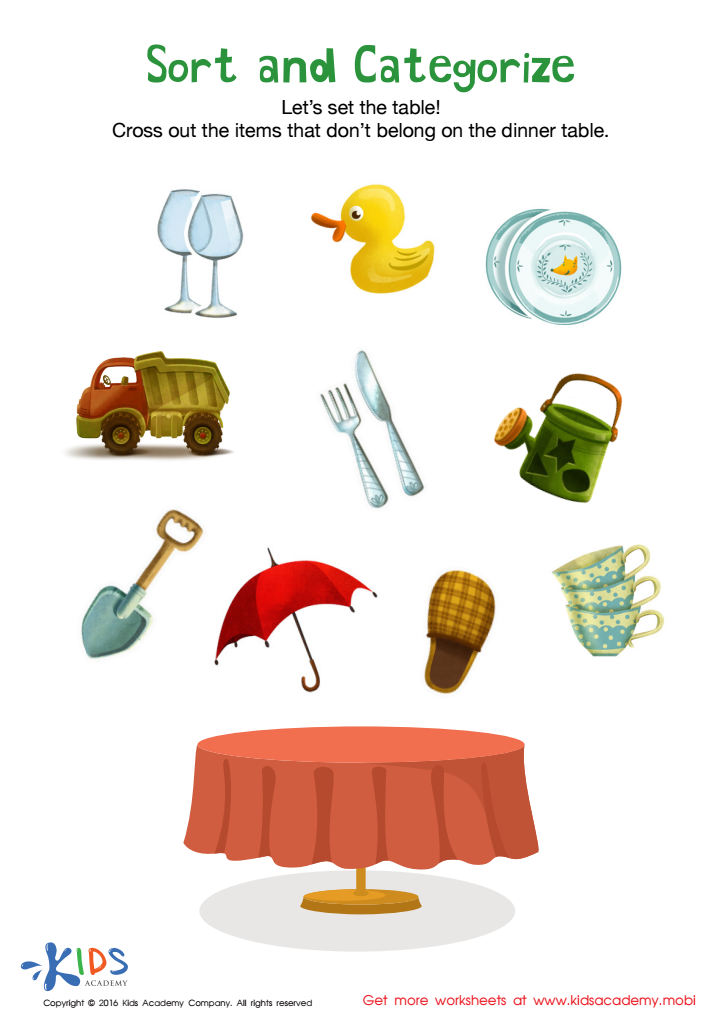





.jpg)

